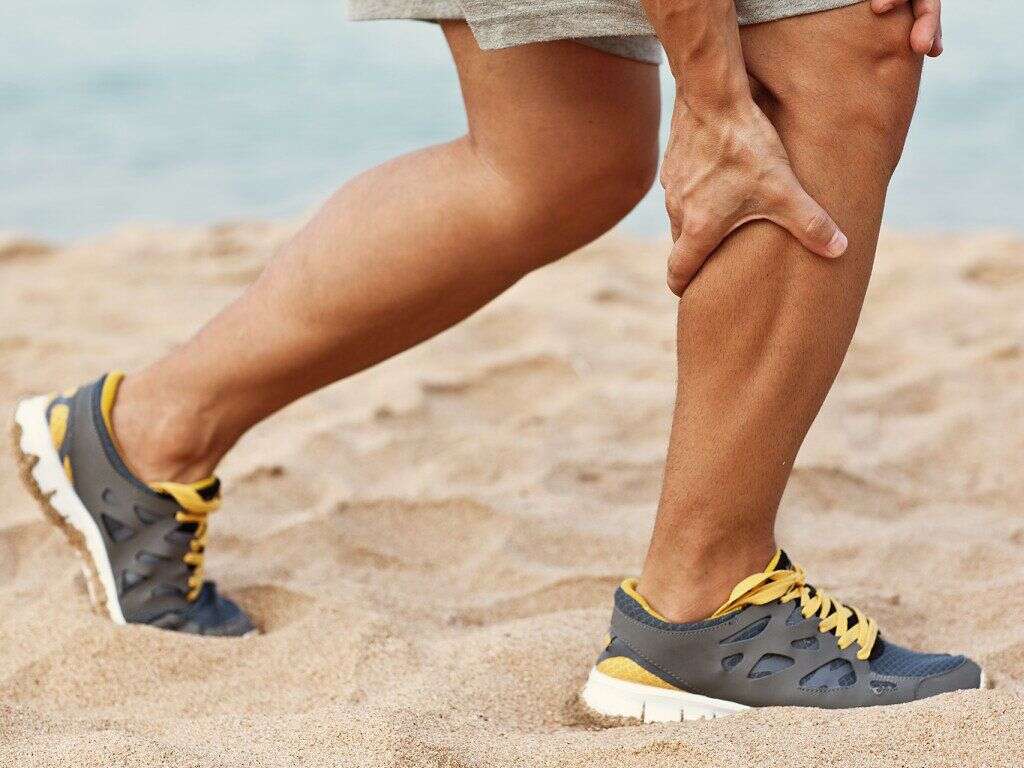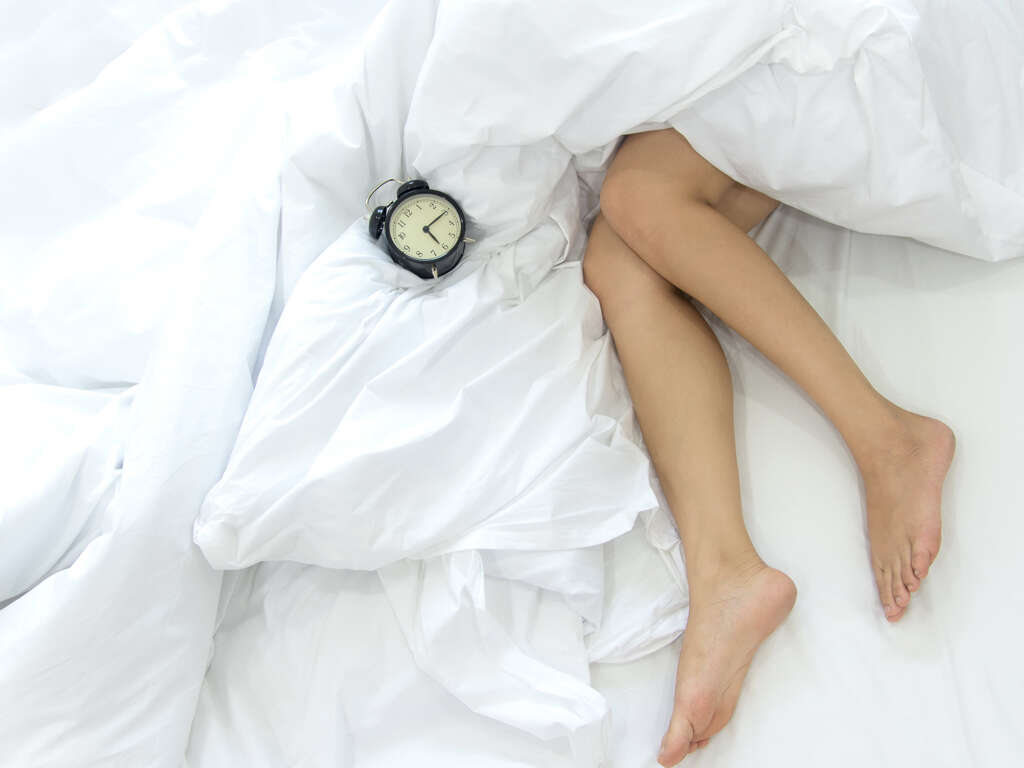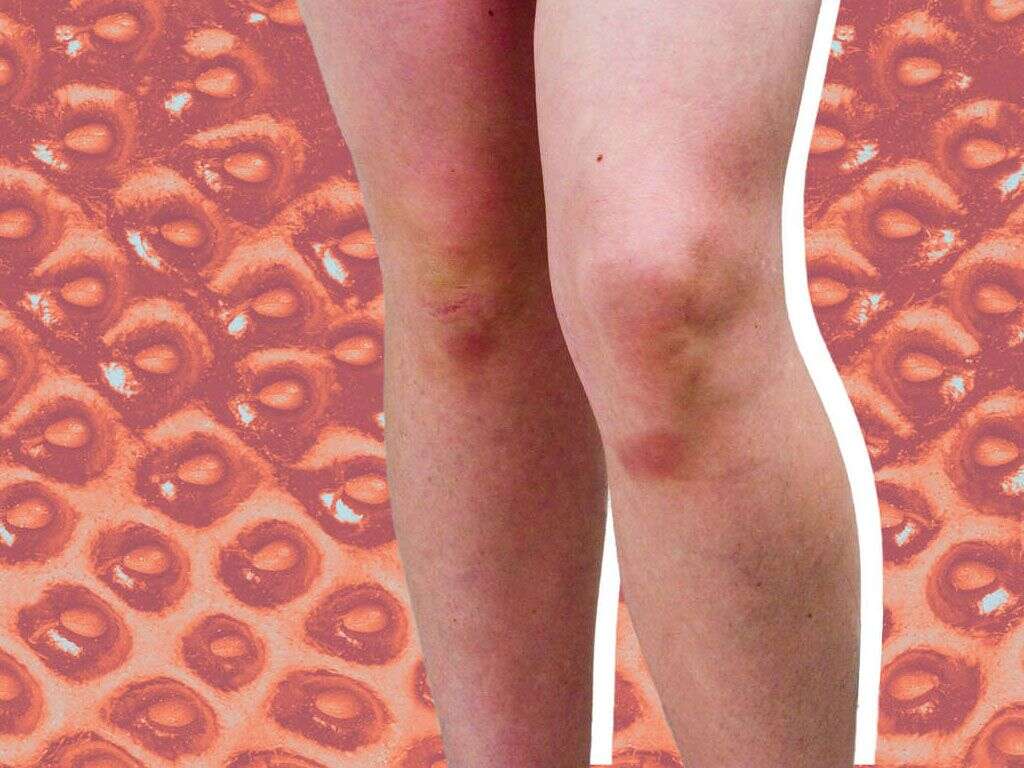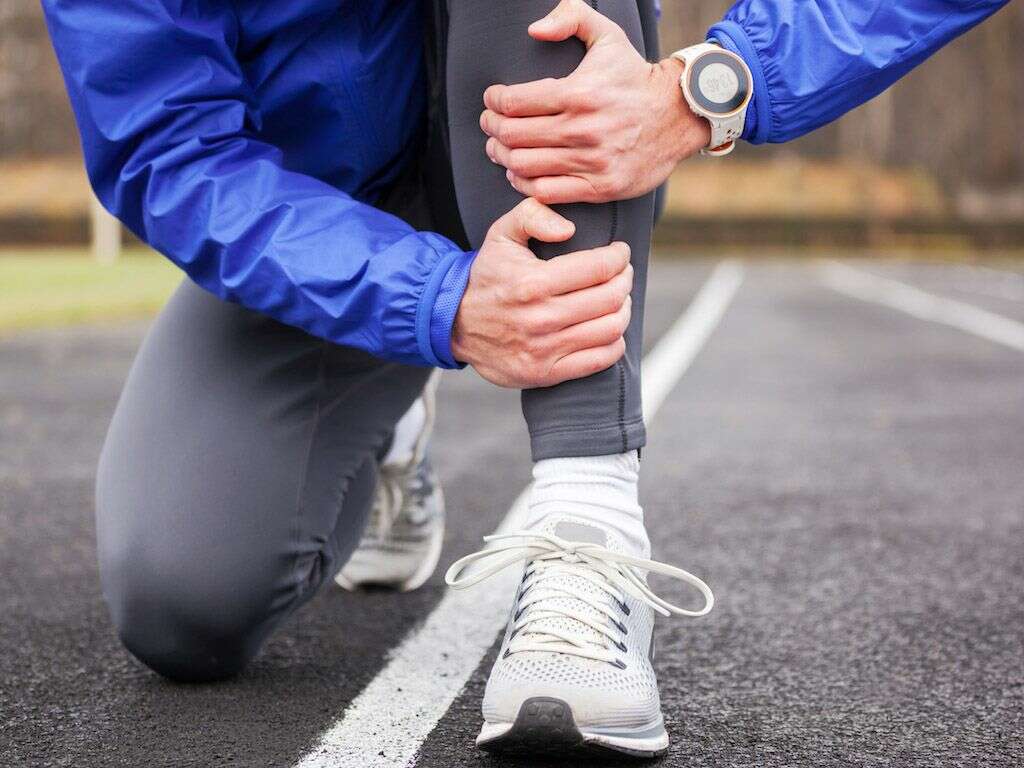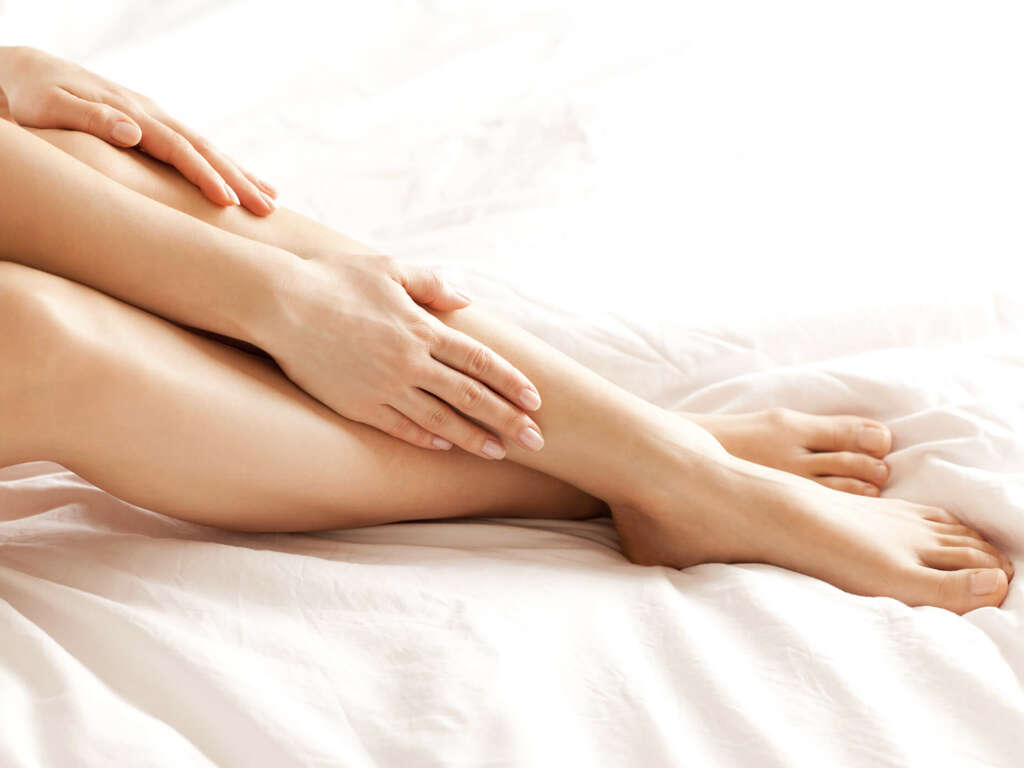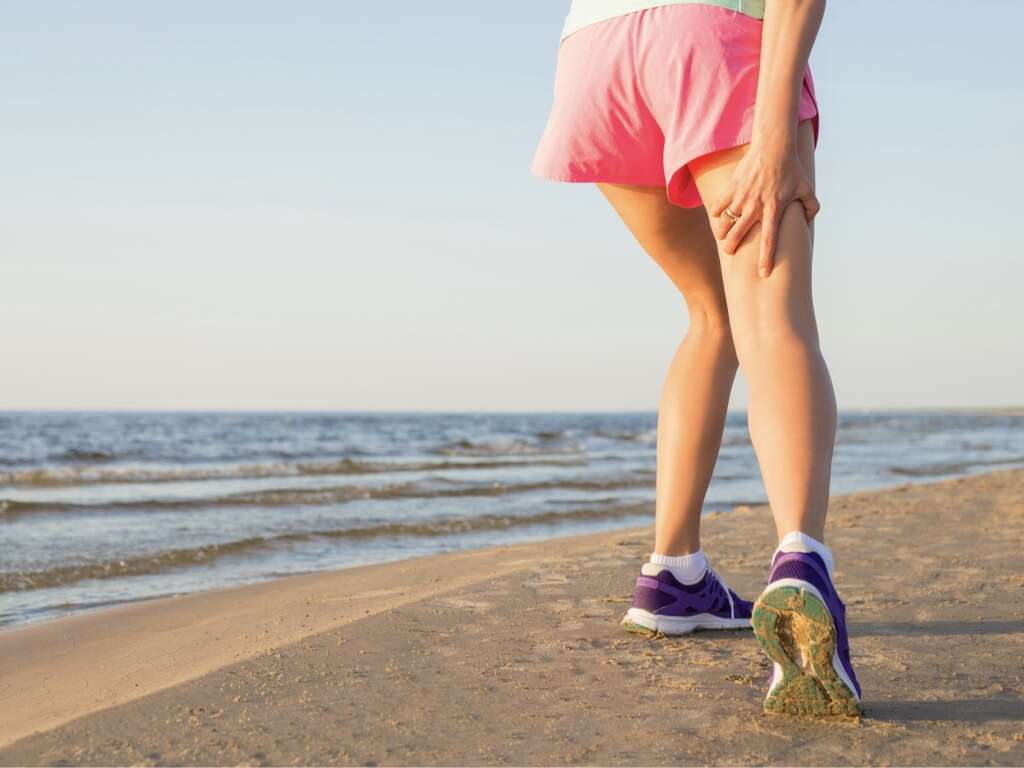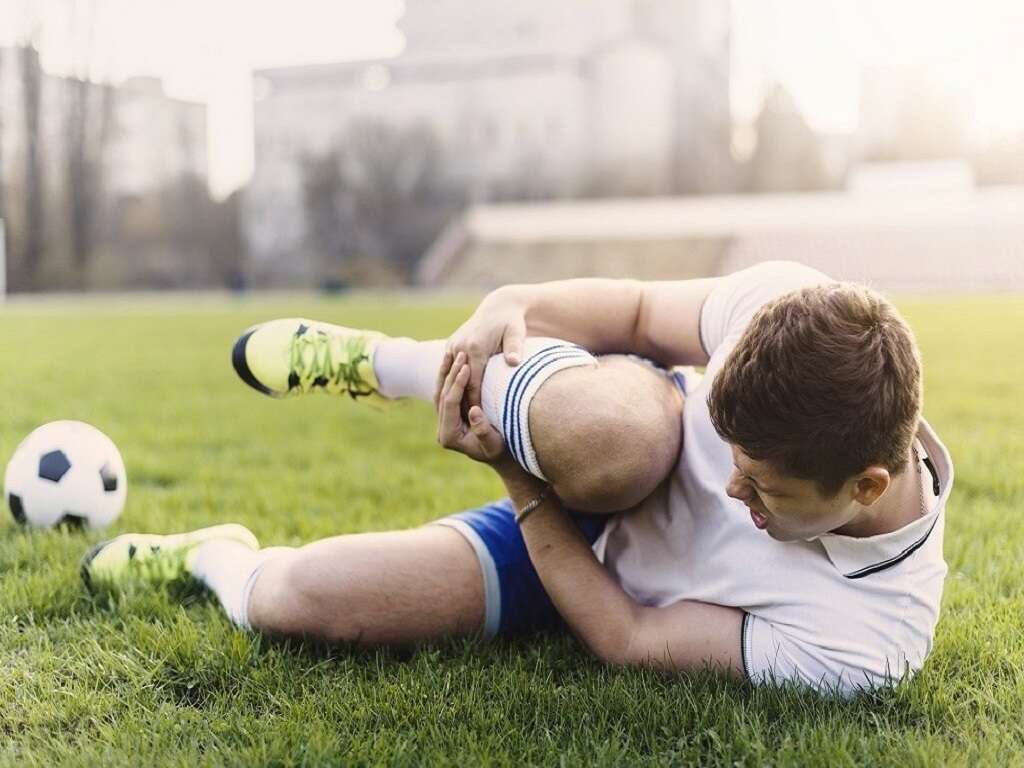Charley Horse Definition, Causes and More
 Article Sources
Article Sources
- 1. 'Muscle Cramps - OrthoInfo - AAOS.' OrthoInfo, orthoinfo.aaos.org/en/diseases--conditions/muscle-cramps.
- 2. 'Muscle Cramps.' Cleveland Clinic, my.clevelandclinic.org/health/symptoms/21190-muscle-cramps.
- 3. Publishing, Harvard Health. 'Take That, Muscle Cramps!' Harvard Health, www.health.harvard.edu/staying-healthy/take-that-muscle-cramps.
- 4. 'Muscle Cramp.' Mayo Clinic, Mayo Foundation for Medical Education and Research, 3 Mar. 2021, www.mayoclinic.org/diseases-conditions/muscle-cramp/symptoms-causes/syc-20350820.
- 5. 'Muscle Spasms (Muscle Cramps): Causes, Pain Relief & Treatment.' Cleveland Clinic, my.clevelandclinic.org/health/diseases/15466-muscle-spasms.
- 6. Bone, Muscle and Joint Team. 'Don't Let Foot Cramps and Charley Horses Slow You Down.' Health Essentials from Cleveland Clinic, Health Essentials from Cleveland Clinic, 15 Sept. 2020, health.clevelandclinic.org/dont-let-foot-cramps-charley-horses-slow/.
- 7. Allen, Richard E., and Karl A. Kirby. 'Nocturnal Leg Cramps.' American Family Physician, 15 Aug. 2012, www.aafp.org/afp/2012/0815/p350.html.
- 8. 'Charley Horse : MedlinePlus Medical Encyclopedia.' MedlinePlus, U.S. National Library of Medicine, medlineplus.gov/ency/article/002066.htm.
- 9. Muscle Cramps By Michael C. Levin, et al. 'Muscle Cramps - Brain, Spinal Cord, and Nerve Disorders.' Merck Manuals Consumer Version, Merck Manuals, www.merckmanuals.com/home/brain,-spinal-cord,-and-nerve-disorders/symptoms-of-brain-spinal-cord-and-nerve-disorders/muscle-cramps.
Also known as a muscle spasm or a cramp, a charley horse is a sudden, involuntary muscle contraction. It may affect part or all of a muscle or a muscle group, and it's usually painful. Acute pain may last for several seconds or several minutes.
Charley horses can occur in any voluntary muscle, but they frequently develop in the calf and in the back or front of the thigh. These spasms may also affect the hands, arms, feet, abdomen and rib cage. While most charley horses aren't serious, sometimes they're a sign of more serious ailments, such as liver or circulatory issues.1‘Muscle Cramps - OrthoInfo - AAOS.’ OrthoInfo, orthoinfo.aaos.org/en/diseases–conditions/muscle-cramps.,2‘Muscle Cramps.’ Cleveland Clinic, my.clevelandclinic.org/health/symptoms/21190-muscle-cramps.
Cause: Muscle Strain and Dehydration
While it's not always possible to identify the cause of a charley horse, exercise is often associated with the development of these painful muscle spasms. Failing to warm up properly prior to exercise, engaging in unusual strenuous activity and muscle fatigue may lead to a charley horse.
Low levels of body fluids may also cause these muscle cramps. This is especially likely when a person exercises in hot weather and perspires profusely. Sweating causes the body to lose fluids and depletes reserves of salt and minerals, such as calcium, potassium and magnesium. When this happens, a charley horse is more likely to develop.1‘Muscle Cramps - OrthoInfo - AAOS.’ OrthoInfo, orthoinfo.aaos.org/en/diseases–conditions/muscle-cramps.,2‘Muscle Cramps.’ Cleveland Clinic, my.clevelandclinic.org/health/symptoms/21190-muscle-cramps.
Cause: Reduced Blood Flow
A charley horse may develop if there is decreased blood flow to the muscles. Some people report leg cramping at night if their legs become cold. In this instance, the blood vessels constrict, restricting blood flow and causing muscle spasms.3Publishing, Harvard Health. ‘Take That, Muscle Cramps!’ Harvard Health, www.health.harvard.edu/staying-healthy/take-that-muscle-cramps.
Cramping can occur if a circulatory disorder such as atherosclerosis is present. This condition causes narrowing of the arteries and may restrict blood flow to the extremities. In this case, muscle spasms may develop during walking or exercise and ease when activity ends.4‘Muscle Cramp.’ Mayo Clinic, Mayo Foundation for Medical Education and Research, 3 Mar. 2021, www.mayoclinic.org/diseases-conditions/muscle-cramp/symptoms-causes/syc-20350820.

Cause: Neurological Problems and Medical Disorders
People with conditions that cause nerve dysfunctions may experience charley horses. Parkinson's disease, nerve compression in the lower back and neuropathy are examples of these types of neurological issues.3Publishing, Harvard Health. ‘Take That, Muscle Cramps!’ Harvard Health, www.health.harvard.edu/staying-healthy/take-that-muscle-cramps.
People with hypothyroidism, a condition in which the thyroid gland produces insufficient levels of thyroid hormones, may also experience frequent charley horse episodes. Pregnant women may develop muscle spasms as electrolyte levels fluctuate, circulation changes and the fetus puts pressure on nerves as it grows.2‘Muscle Cramps.’ Cleveland Clinic, my.clevelandclinic.org/health/symptoms/21190-muscle-cramps.
Cause: Medications
Charley horses may develop in people who take certain medications. The decongestant pseudoephedrine may cause muscle spasms. Cramping may also occur in people who take statins, medications routinely prescribed to treat high cholesterol. Diuretics may also cause charley horses. People sometimes experience charley horses after taking naproxen, conjugated estrogens, raloxifene and intravenous iron sucrose.2‘Muscle Cramps.’ Cleveland Clinic, my.clevelandclinic.org/health/symptoms/21190-muscle-cramps.,7Allen, Richard E., and Karl A. Kirby. ‘Nocturnal Leg Cramps.’ American Family Physician, 15 Aug. 2012, www.aafp.org/afp/2012/0815/p350.html.
A person who experiences frequent charley horses after starting a new medication regimen should notify their health care provider about this side effect.6Bone, Muscle and Joint Team. ‘Don’t Let Foot Cramps and Charley Horses Slow You Down.’ Health Essentials from Cleveland Clinic, Health Essentials from Cleveland Clinic, 15 Sept. 2020, health.clevelandclinic.org/dont-let-foot-cramps-charley-horses-slow/.

Risk Factors
People who are overweight or have an underlying condition are more prone to experiencing charley horses. Athletes and people undertaking strenuous activities are also more likely to have charley horses, especially if their bodies are not in top condition or they've failed to warm up properly.
Older people may be more likely to have muscle cramps, since muscles begin to atrophy with age and decreased activity. Those most likely to have charley horses due to dehydration include babies, children and people over age 65.1‘Muscle Cramps - OrthoInfo - AAOS.’ OrthoInfo, orthoinfo.aaos.org/en/diseases–conditions/muscle-cramps.
Treatment
If a charley horse occurs, the person should stop whatever they're doing and stretch and massage the affected area until the discomfort eases. In most cases, medical attention isn't needed to treat charley horses. Applying heat may help calm the spasm, and ice may help alleviate residual soreness once the charley horse has passed.
Over-the-counter pain medications may also soothe lingering pain. For recurrent charley horses, a doctor may prescribe antispasmodic medications.8‘Charley Horse : MedlinePlus Medical Encyclopedia.’ MedlinePlus, U.S. National Library of Medicine, medlineplus.gov/ency/article/002066.htm. Surgeries are reserved for severe cases that don't respond to conservative measures.
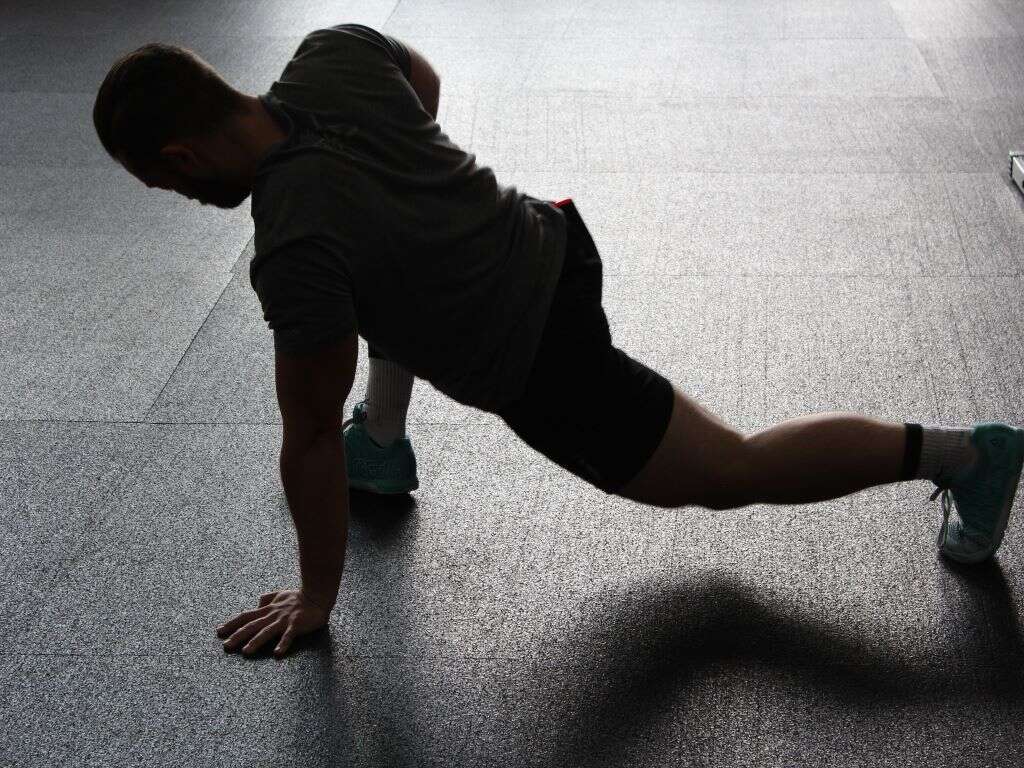
Preventing Charley Horses
Although there's no foolproof way to prevent charley horses, keeping fit, maintaining a healthy weight, performing flexibility exercises and stretching regularly can be helpful. It's also wise to avoid exercising when the weather is hot. Drinking plenty of fluids and electrolyte replacement help prevent muscle spasms due to dehydration.5‘Muscle Spasms (Muscle Cramps): Causes, Pain Relief & Treatment.’ Cleveland Clinic, my.clevelandclinic.org/health/diseases/15466-muscle-spasms.
Avoiding smoking and consumption of alcohol and caffeine may help keep charley horses at bay. It's also a good idea to avoid medications that may make muscle spasms more likely to occur.9Muscle Cramps By Michael C. Levin, et al. ‘Muscle Cramps - Brain, Spinal Cord, and Nerve Disorders.’ Merck Manuals Consumer Version, Merck Manuals, www.merckmanuals.com/home/brain,-spinal-cord,-and-nerve-disorders/symptoms-of-brain-spinal-cord-and-nerve-disorders/muscle-cramps.
When to See a Doctor
Usually, charley horses resolve on their own or with home treatment. But medical assistance is necessary if the cramps last longer than 10 minutes, occur frequently, interfere with sleep or quality of life, or don't improve with exercise, massage and hydration.2‘Muscle Cramps.’ Cleveland Clinic, my.clevelandclinic.org/health/symptoms/21190-muscle-cramps.
Emergency medical care is in order if charley horses are accompanied by sudden weakness or loss of feeling or if the person has lost large quantities of bodily fluids through vomiting, diarrhea or profuse perspiration.9Muscle Cramps By Michael C. Levin, et al. ‘Muscle Cramps - Brain, Spinal Cord, and Nerve Disorders.’ Merck Manuals Consumer Version, Merck Manuals, www.merckmanuals.com/home/brain,-spinal-cord,-and-nerve-disorders/symptoms-of-brain-spinal-cord-and-nerve-disorders/muscle-cramps.
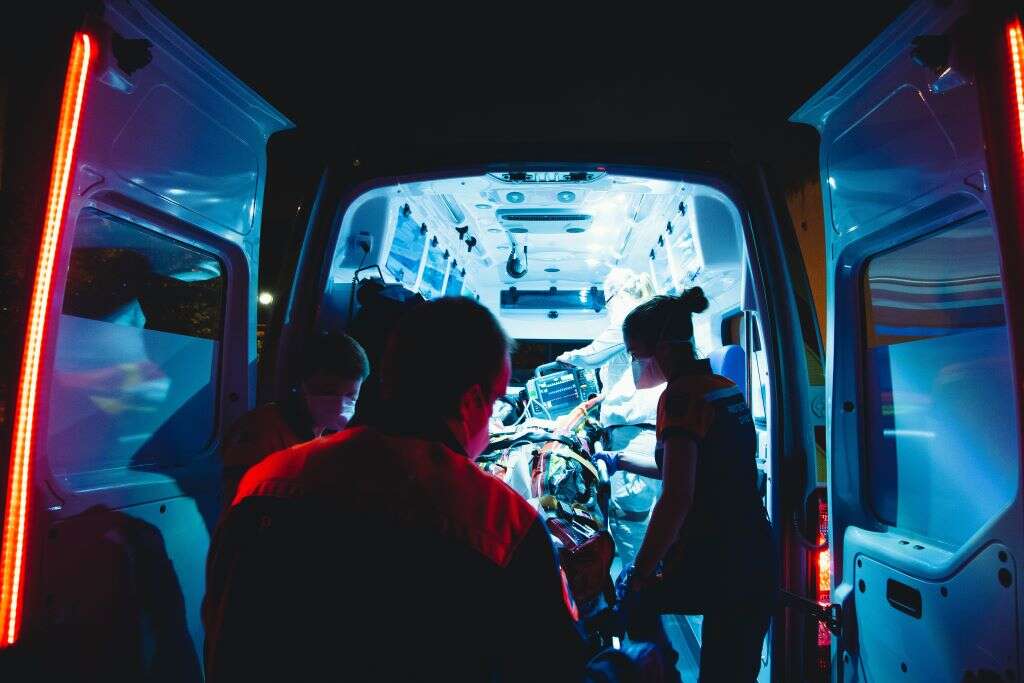
Diagnosis
To diagnose charley horses, health care providers review the person's medical history, conduct a physical examination and ask about the frequency, location and duration of the charley horses as well as triggering events and the presence of accompanying symptoms. They may test blood sugar and electrolyte levels as well as kidney function.
In some cases, they may order electromyography to test muscle function. Occasionally an MRI may be necessary to check for issues with the nervous system.9Muscle Cramps By Michael C. Levin, et al. ‘Muscle Cramps - Brain, Spinal Cord, and Nerve Disorders.’ Merck Manuals Consumer Version, Merck Manuals, www.merckmanuals.com/home/brain,-spinal-cord,-and-nerve-disorders/symptoms-of-brain-spinal-cord-and-nerve-disorders/muscle-cramps.
Similar Disorders
Some disorders may cause symptoms similar to charley horses. One of these disorders is tetany, in which muscle spasms occur continually throughout the body. Some people experience illusory muscle cramps, so they feel like they are having muscle spasms even though muscle contractions aren't occurring.
Dystonias are involuntary muscle contractions that last for a longer time and occur more frequently than charley horses. These contractions may affect muscles in the back and neck as well as the limbs.9Muscle Cramps By Michael C. Levin, et al. ‘Muscle Cramps - Brain, Spinal Cord, and Nerve Disorders.’ Merck Manuals Consumer Version, Merck Manuals, www.merckmanuals.com/home/brain,-spinal-cord,-and-nerve-disorders/symptoms-of-brain-spinal-cord-and-nerve-disorders/muscle-cramps.


